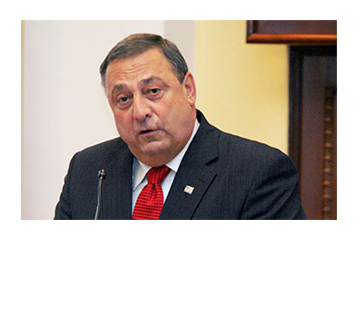The first regular session of the 127th Legislature was finally put to bed last week, as the Maine Supreme Judicial Court ruled unanimously that Gov. Paul LePage missed his chance to veto 65 bills.
The governor’s misguided gambit, in which he argued a constitutional question that almost everyone but him saw as already settled, stretched the heated and sometimes bitter session, already over its statutory adjournment date of June 16, well past the actual final gavel of July 16.
Now that the business is finally, thankfully resolved, the question remains whether the hostility of the session — not between rival political parties, but the governor and a significant portion of the Legislature — will carry on, impeding the progress of the second regular session just as it did the first.
The answer lies, as always, with LePage, who dominates and drives the conflict.
If he wants to accomplish anything of note in the remainder of his term, if he’s learned anything from the last seven months, the governor must find a way to mend his relationship with lawmakers enough to locate common ground on the big issues facing Maine.
If any sign can be described as optimistic, it’s LePage’s response to the court ruling.
The ruling is only advisory, so LePage could have chosen to challenge it in law court. Or he could have announced that his office would not enforce the laws, as he did when the conflict first arose.
Of course, neither path would have much chance of success, and the latter can only be described as the nuclear option. But that hasn’t stopped the governor before.
Instead, LePage issued a statement thanking the justices for a “fast and fair resolution,” adding that “we look forward to moving on.”
Just where he is moving on to is an open question. We hope it’s to an area of reconciliation, where policy is put out front, rather than threats of political retaliation, accusations of dishonesty and obstruction of the legislative process.
That could be difficult. In September, the Office of Program Evaluation and Government Accountability will release the results of the investigation into LePage’s threats to withhold state funds from Good Will-Hinckley after the school hired House Speaker Mark Eves, D-North Berwick.
The agency’s findings could spur further investigation, and reignite calls for impeachment.
How far that goes could depend a lot on the signals LePage sends the Legislature in the next few weeks. Following the loss in court and the lack of action on his priorities last session, will he try a new, more civil tack?
Some Republican Party leaders hope so.
Mike Thibodeau, the Senate president who was a LePage ally until he questioned some aspects of the governor’s budget, issued a statement last week asking the administration to “reset their relationship” with the Legislature.
Lance Dutson, a Republican operative who has been an outspoken critic of LePage’s behavior, similarly asked for a “different pattern of conduct” from the governor.
For all of us who endured an elongated session where acrimony reigned, we hope he listens.
Send questions/comments to the editors.



Comments are no longer available on this story